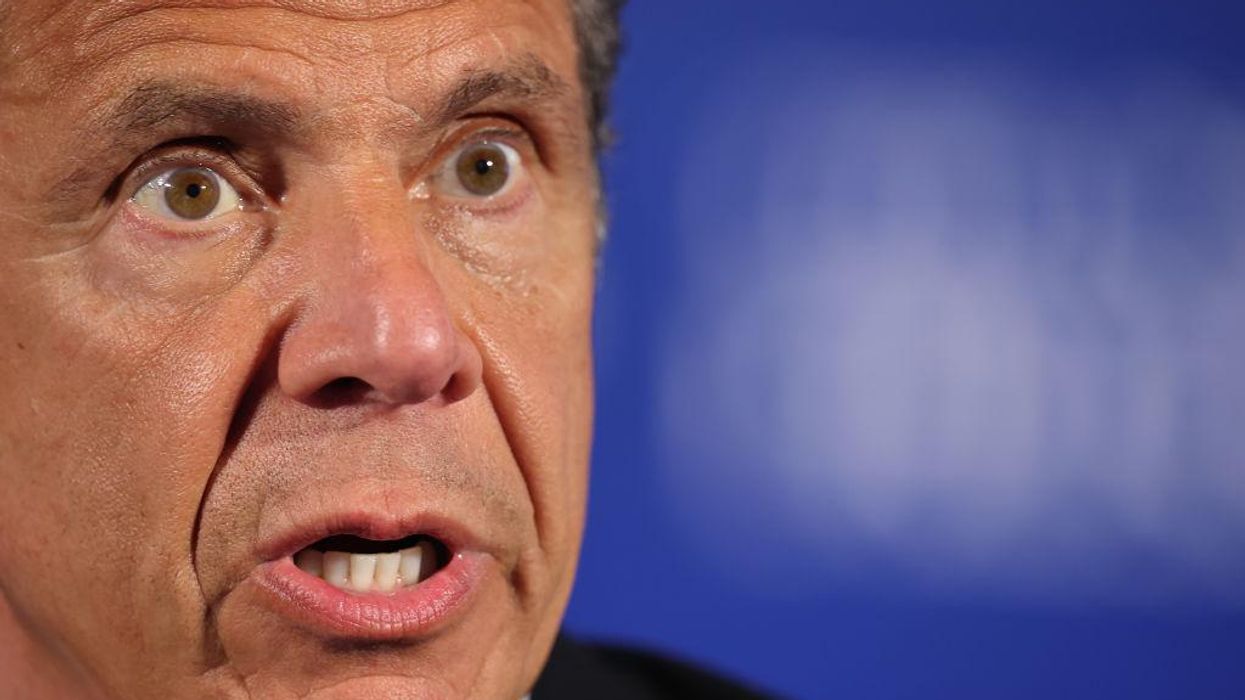
Chip Somodevilla/Getty Images

Months after departing from office, disgraced former New York Gov. Andrew Cuomo is still facing scrutiny for his handling of the COVID-19 pandemic as new materials are released from a sexual harassment investigation of the former governor.
Cuomo resigned from his post earlier this year in the wake of a report that concluded he had sexually harassed multiple women, an allegation which he denied.
"There is a lot that has now been put on the record as a result of the AG investigation that doesn't relate to allegations of sexual harassment but does relate to spiteful pandemic mismanagement," New York Times correspondent Maggie Haberman tweeted.
There is a lot that has now been put on the record as a result of the AG investigation that doesn\u2019t relate to allegations of sexual harassment but does relate to spiteful pandemic mismanagementhttps://twitter.com/nyhammond/status/1458923887702511619\u00a0\u2026— Maggie Haberman (@Maggie Haberman) 1636669857
The testimony of a former New York State Department of Health employee who served as the medical director in the division of epidemiology is drawing attention.
"We were not allowed to collaborate with our peers in the local health departments and New York City Department of Mental Health and Hygiene which is a critical component in an outbreak response to collaborate with different facets of public health. They actually implemented it and we do not. So generally, so not being able to collaborate with them in the way we normally would really hindered our ability to perform our jobs we felt," the former employee said.
When asked who barred the state health department from engaging in collaboration with the other entities, the person could not say specifically who was responsible, but said that the implication was that the direction was coming from the Executive Chamber.
Here's more from the testimony:
Q. Who blocked the Department of Health of New York State from collaborating with peers and local departments and New York City?
A. We were advised that we couldn't really have our routine unofficial meeting, the official meeting everything had to be approved in advance. So it took so long to get things approved it made them very challenging to even logistically organize.
And so but I can't say exactly who I know who relayed the message to me because I don't know who it ultimately came from. They implied it came from the Chamber. It was sort of the implication. I can't say that they — it was them exactly. We had to stop doing webinars with them. We couldn't collaborate with them on evaluations of different problems and projects.
Our informal discussions had to cease and formal ones, everything that to be approved first which was very, very challenging to even accomplish. So its basically made it — indirectly made it so that the formal discussions were almost either impossible to have or you couldn't really share any valuable information. So it was a pretty uninformative discussion.
Q. Who implied that this direction came from the Executive Chamber?
A. I just remember my boss mentioning, I think it came from her boss, [redacted], I think [redacted] at some point said it, [redacted]. I think it was repeated by multiple people. I can't remember specifics of any of those conversations of when or where, but I knew it didn't come from them per se.
Prior to announcing his plan to step down from office, the Democratic governor had faced a barrage of calls to resign, including from many members of his own party.
Lt. Gov. Kathy Hochul became the first female governor in the Empire State's history when she filled the vacancy created by Cuomo's departure.